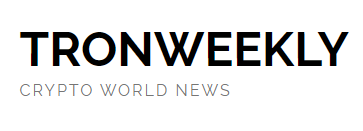January 30, 2025 by Mutuma Maxwell
- El Salvador’s Congress passed a bill making Bitcoin acceptance optional for businesses.
- The amendment aligns with the country’s $1.4 billion loan agreement with the IMF.
- Bitcoin remains legal tender, but is no longer mandatory for private businesses.
El Salvador’s Congress has passed a bill to modify its Bitcoin laws, aligning with its $1.4 billion loan agreement with the International Monetary Fund (IMF). Lawmakers approved the measure on January 29, just minutes after President Nayib Bukele sent it to the Legislative Assembly. The reform eliminates the mandate requiring businesses to accept Bitcoin, making its use optional.
El Salvador Drops Bitcoin Mandate for Businesses
The bill received 55 votes in favor and only two against, marking a shift in the country’s crypto policies. The amendment ensures Bitcoin remains legal tender while removing compulsory acceptance by private businesses. Government officials say the change aims to balance innovation with financial stability while complying with IMF requirements.
El Salvador made Bitcoin a legal tender in 2021, drawing global attention and mixed reactions from financial institutions. Businesses were previously required to accept Bitcoin alongside the U.S. dollar, which some found challenging due to volatility. The latest reform allows companies to decide whether to accept Bitcoin, easing concerns among business owners and investors.
Despite the adjustment, El Salvador continues expanding its Bitcoin reserves, purchasing 12 BTC for its national holdings. The government now holds 6,049 BTC, valued at approximately $633 million, with an average acquisition price of $46,000 per Bitcoin. Officials confirm the country has no plans to sell, maintaining Bitcoin as a core part of its economic strategy.
The National Bitcoin Office confirmed plans to accelerate Bitcoin acquisitions in 2025. Director Stacy Herbert indicated the government remains committed to its Bitcoin strategy despite the legal adjustment. Authorities also announced plans to phase out or sell the Chivo wallet, allowing private companies to offer alternatives.
Meanwhile, the same day Congress passed the amendment, former U.S. Senator Bob Menendez received an 11-year sentence for bribery. FBI agents found $480,000 in cash and $150,000 in gold bars in his home. Menendez had been a vocal critic of El Salvador’s Bitcoin policy, adding an ironic twist to the timing of his conviction.
U.S. States Push for Bitcoin Treasury Reserves
Several U.S. states, including New Hampshire and North Dakota, have introduced legislation to add Bitcoin to their treasury reserves. Texas, Pennsylvania, and Ohio have also proposed measures to diversify their financial holdings with cryptocurrency. Lawmakers argue Bitcoin can serve as a hedge against economic uncertainty and inflation.
Texas Representative Giovanni Capriglione introduced the Texas Strategic Bitcoin Reserve Act, aiming to hold Bitcoin for at least five years. Pennsylvania Representative Mike Cabell proposed allocating up to 10% of the state’s balance sheet in Bitcoin. Corporate investors like MicroStrategy and Metaplanet have also increased their Bitcoin holdings, signaling broader institutional interest in cryptocurrency.
El Salvador’s decision to amend its Bitcoin laws reflects a strategic balance between financial innovation and economic stability. While the country remains committed to Bitcoin, the latest changes align its policies with international financial agreements. The move highlights the evolving relationship between governments, digital assets, and global financial institutions.
Disclaimer:
The information provided on this website is intended for general informational purposes only and does not constitute professional financial advice. Users should conduct their own research and consult with a licensed financial advisor before making any investment decisions. By using this site, you acknowledge and accept that you are solely responsible for your investment choices and any associated risks.

 6 months ago
35
6 months ago
35




 English (US) ·
English (US) ·